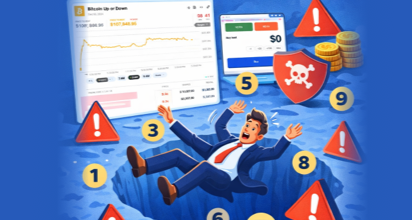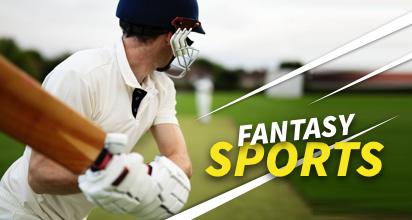Can Indian fantasy sports operators make profit from paid games?
Do you know if you can use the names and logos of existing teams and players on your fantasy sports app? The blog answers the most vital questions about Indian laws.
Fantasy sports in India are seeing a time like never before. Finally, the government is taking steps to regularize the industry taking a business-friendly approach. In the last blog about Indian Federation of Sports Gaming (IFSG), we discussed fantasy sports in India and a few basic laws that you need to know.
Today, you will learn about the latest developments in the Indian laws related to paid fantasy games.
#1 Are fantasy games with real money prizes legal?
The earliest fantasy games in India used to be based primarily on cricket and most of these tournaments were offered on the basis of free-to-play games. But now, games are offered in football, basketball, and even kabaddi where fantasy game managers can practically manage a virtual team by both free-to-play and pay-to-play basis. This means that fantasy games in India are now being played for cash i.e actual money prizes. Now we have already established in the last blog that the Public Gambling Act (PGA) 1867 criminalizes gambling in any form that involves prize money in a game of chance.
Real money in a paid game of skill
Once the distinction is made between game of skill and chance, courts have expressed willingness in going into the detail of any fantasy game for determining it as a game of skill or chance. Now even games such as rummy, bridge and horse racing are considered games of skill. As we discussed in the last blog, a landmark judgement was passed by Supreme Court in favour of fantasy sports provider Dream11 calling the platform a ‘game of skill’ in the Punjab and Haryana High Court v/s Varun Gumber case. In the light of this ruling, it is indeed legal to offer and play paid fantasy games in most states where the predominant game is a ‘game of skill’.
#2 Can paid fantasy sports games operators have legal business models?
This confusion began due to the Satyanarayana case that seemed to suggest that operators of games of skill must not make profits from offering their games as this would somehow risk a characterisation as gambling, even though the nature of the underlying game remained a game of skill. However, in a more recent 2017 ruling during Varun Gumber case, the court had held the business of fantasy sports provider Dream11 as a legitimate business activity and was protected under Article 19(1)(g) of the Constitution of India.
Is it played for stakes?
The key is to understand whether the operator of the fantasy game or sport is making “a profit or gain” from any game “played for stakes”, i.e., anything more than nominal charges levied on users to defray the operator’s expenses. From the perspective of paid fantasy sports games, the Varun Gumber case is a positive sign. It reflects the positive attitude of the court and a genuine willingness to evaluate the fantasy sports format in the ‘game of skill’ criterion.
You are allowed to make profit
This implies that as long as the games of skill are outside the purview of gambling legislation, any person operating a game of skill may profit from such operation without any additional constraint. It’s imperative that the said operator’s fantasy game format has been assessed as having a ‘predominant skill’ component.
#3 Does the use of ‘facts’ and identity of real players put fantasy game operators under copyright law radar?
For any operator to be protected under the Copyright Act, the facts must qualify as ‘literary’ work. Now literary works have been defined in the act which include computer programmes, tables and compilations. This means ‘originality’ is a concept and does not mean that an idea used by a person must be original but that the expression of the thought by a person should be original and not a copy. Facts are not considered copyrightable as per the act. However, the Copyright Act affords protection to ‘compilations’, which are considered to be ‘literary’ copyrightable works.
Facts v/s compilation
A fantasy sports game operator may invite copyright infringement in case he or she uses other proprietor’s (say broadcaster) compilation of statistics which the said proprietor prepared after spending substantial amount of labour and resources to collect, compile and distribute. But if a fantasy game operator compiles his/her own statistics in its format in an original manner using his/her own labour or resources, then he/she is protected from the copyright.
There’s a similar stand about use of the names of players because the teams and leagues are using players for one type of business model while fantasy sports operators are using the identity of players in another business format. This can be further explained in the next question.
As long as the games of skill are outside the purview of gambling legislation, any person operating a game of skill may profit from such operation
#4 Is it legal for fantasy sports operators to use logos, names of actual teams and leagues?
In India, most fantasy sports game operators use the names of players, team logos and team names so participants can easily identify these since games are based on actual fixtures of real-life games.
Trademarks Act of India
To quote the Trade Marks Act, 1999 (“Trademarks Act”), a registered trademark is infringed when a person, (i) not being a registered proprietor or a permitted user (ii) uses in the course of trade a mark which is identical or similar or deceptively similar trade mark in relation to the goods or services in respect of which the trade mark is registered (iii) and in such manner as to render the use of the mark likely to be taken as being used as a trademark.
Conflict of interest
Unless there is a clear conflict between the use of such trademarks between two parties, one business can use such an identity for referring to a totally different business interest in a different context. In short, “the use of a registered trademark would constitute an infringement only if it indicates a connection in the course of trade between the person and his goods or services, irrespective of his intention.” This means that in India, a mere usage of the trademark by a third party would not amount to infringement because the third party is not using it in the same context as the owner of the trademark.
Context of use
In a nutshell, while fantasy sports game operators use trademarks of Proprietors, their business is different from that of the Proprietors. To quote an IFSG document, “the requirement that the use of the mark by a fantasy sports game operator is “likely to be taken as being used as a trademark” of the fantasy sports game operators is not satisfied because use of trademarks of Proprietors would not be such that the public associates the mark used by the fantasy sports game operator with the mark owned by the Proprietor. This element of likelihood of confusion as emphasised in other jurisdictions is improbable in the case of fantasy sports game operators because it does not in any manner suggest endorsement of the fantasy sports game by the registered Proprietors of trademarks, but is used only for the functional purpose of identifying the Players, teams and matches.”
[Source: Indian Federation of Sports Gaming (IFSG) document ‘The laws relating to fantasy sports games in India’ February 2018]
Interested in starting a fantasy sports business in India? Read these –
How to be the next Dream11? and Time’s now for IPL Fantasy app
If you are an aspiring fantasy sports games operator, we encourage you to reach out to us in case of any query or confusion. Vinfotech is a member of IFSG and has been creating winning fantasy sports website and mobile applications applications for almost eight years. We are world leaders in fantasy sports app development. You can give us a call to know more.
- Fantasy games or sports with real money prizes are legal in India
- Fantasy sports operators are allowed to make profit from paid games
- Facts don’t come under copyright but copying the compilation of facts from another operator is illegal
- Fantasy sports operators can use the names, logos of players, teams and leagues in a different context than the latter
About Vinfotech
Vinfotech creates world’s best fantasy sports-based entertainment, marketing and rewards platforms for fantasy sports startups, sports leagues, casinos and media companies. We promise initial set of real engaged users to put turbo in your fantasy platform growth. Our award winning software vFantasy™ allows us to build stellar rewards platform faster and better. Our customers include Zee Digital, Picklive and Arabian Gulf League.















